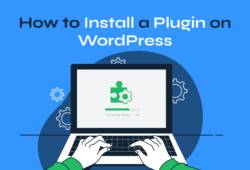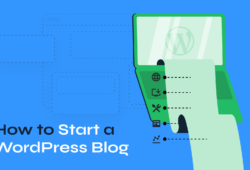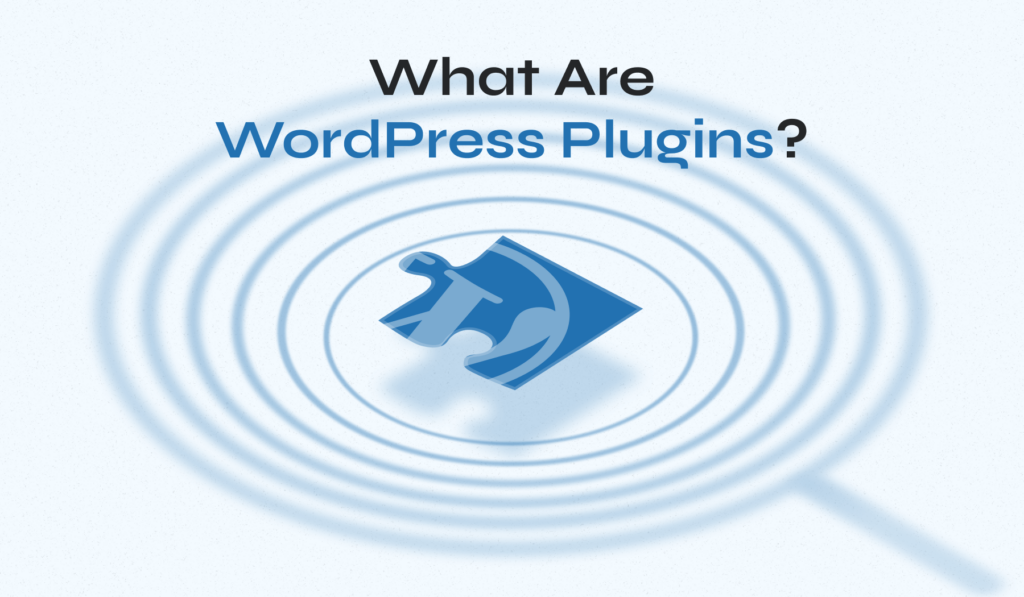
Building your first WordPress website may seem like an incredible adventure. While choosing the right theme for your project is important, you should know that the plugins you install will play an equally important role. What are WordPress plugins?
Well, as pleasing as having a short answer would be, the concept of WordPress plugins needs to be explored in a lot more depth if you want to have a good understanding of what WordPress plugins are, why they matter, and how to choose the right ones.
Table of Contents
- What Is a WordPress Plugin?
- Why Should You Use WordPress Plugins
- How to Use WordPress Plugins?
- How to Choose the Best WordPress Plugins
- Must-Have WordPress Plugins by Type
- How Do WordPress Plugins Work?
What Is a WordPress Plugin?
A WordPress plugin is an app that allows you to enhance your WordPress site to a certain extent. This software component can add extra features to your site, both in terms of design and in terms of functionality.
These plugins need to be downloaded and installed on your website. To put things in a clearer perspective, imagine WordPress being the equivalent of your operating system (e.g. Android, iOS, Windows, macOS). While WordPress is your main operating system, it needs additional software to fulfill different other purposes, just like you need (or want) all kinds of different apps on your smartphone.
The purpose behind every plugin is to provide a specific service, to provide a solution to a need that cannot be met by WordPress alone. That can range from simply providing you with a way to add a contact form to your website to more complex things like providing your site with a heightened level of security or better performance.
Why Should You Use WordPress Plugins
There are several reasons why using WordPress plugins is not only beneficial but also necessary. Plugins are, like in the example presented above, the apps that transform your website from a simple landing page into a functional platform that provides a service or an interactive experience.
That is why plugins are important, so here are some of the most relevant reasons you need them.
- Functionality. One of the main reasons why plugins are important is the fact that they add a new level of functionality. This functionality can mean a lot of different things depending on the actual plugin you are choosing, but here are some important examples of what you might need: contact forms, anti-spam protection, newsletter subscription forms, pop-ups, membership website configuration, etc
- Customization options. WordPress plugins can also play an important role in how you design your website. There are many ways in which they can contribute to the overall aspect of your WordPress website.
Plugins can add design elements to your website. Things like special fonts, different buttons, navigation options (menus, breadcrumbs), sliders, and many other elements can be added or enhanced with the use of plugins.
All these advanced editor plugins can also be used for adding different widgets or even customizing your website from scratch (on top of your WordPress theme). - Better experience for your users. From better in-site navigation options like menus to providing extra functionality that improves your user experience (Google Maps integration, contact forms, and special menus for making reservations), plugins can enhance your website overall. There are dozens of things plugins can do to improve the way visitors interact with your website, but they can also save you a lot of time as a website developer or administrator.
- Ease of use. WordPress plugins are also notorious for making your life easier. That’s because you will be able to achieve quite a lot both in terms of design and functionality without having to write the code yourself.
Simply implementing features is a lot quicker and a lot cheaper than developing features from scratch or hiring experts to custom-design them for you. From custom CSS to integrating full sliders and widgets, plugins are a safe, easy, and cheap alternative to designing your elements. - E-commerce. An e-commerce website is, in general, a rather complex platform. You need a way to display your products, the possibility to add products to a cart, checkout, and integrate payment options. On top of this, your admin section should allow you to keep track of your inventory, it should provide you with easy solutions for completing orders and shipping them.
As you can imagine, building everything from scratch is both time-consuming and expensive, and requires quite a lot of experience.
With plugins like WooCommerce though, all you need to do is choose a compatible theme, install the WooCommerce plugin, and configure it. In just a couple of clicks, with some setting up, and extremely low costs (compared to the price of building a platform from scratch), you can have your very own e-commerce site up and running in no time. - Security. There are dedicated security plugins out there that will help protect your website against all kinds of different cyber threats. From anti-spam protection to much more complex solutions, the right security plugins can be a great way for you to keep your website safe.
Granted, choosing the right one for your needs may be a little complicated considering the number of choices and the variety of security benefits each plugin offers. It all depends on your particular needs and what type of website you own.
Whether you need malware scanning, WAF (web application firewall), live traffic monitoring, or basic 2FA integration for login, there are complex solutions out there for you. - Performance. WordPress plugins can also improve your website’s performance. Through simple tasks like resizing your images to reduce site loading times or managing cached information, dedicated performance plugins can improve your site’s performance.
Loading speed is of utmost importance for several reasons, two of each being that people generally avoid spending any time on sites that don’t load quickly enough and that search engines use the site’s speed as a ranking factor.
How to Use WordPress Plugins?
How WordPress plugins are used depends a lot on their purpose and complexity, but generally, the process is a pretty straightforward one that follows a clear structure.
- Search, find, and install plugins you need
- Activate the plugin
- Configure its settings to meet your needs
- Use the plugin the way it was meant to be used
- Keep it updated
- Uninstall it from WordPress when you no longer need it.
How you interact with the plugin as a site owner or developer depends a lot on what the plugin was intended to do. You will use an SEO plugin a lot differently than you will a site-building plugin.
How to Find and Install Plugins?
Regardless of the purpose of the plugin in question, using it always starts with finding the right plugin and installing it on your site. There are two ways to do that, the WordPress directory and third-party sources. Here are our step-by-step guides to find and install a plugin.
Install Plugins From the WordPress Directory
1. Log into your WordPress dashboard.
2. From the left sidebar, click on Plugins -> Add New Plugin to access and explore the WordPress plugin directory.
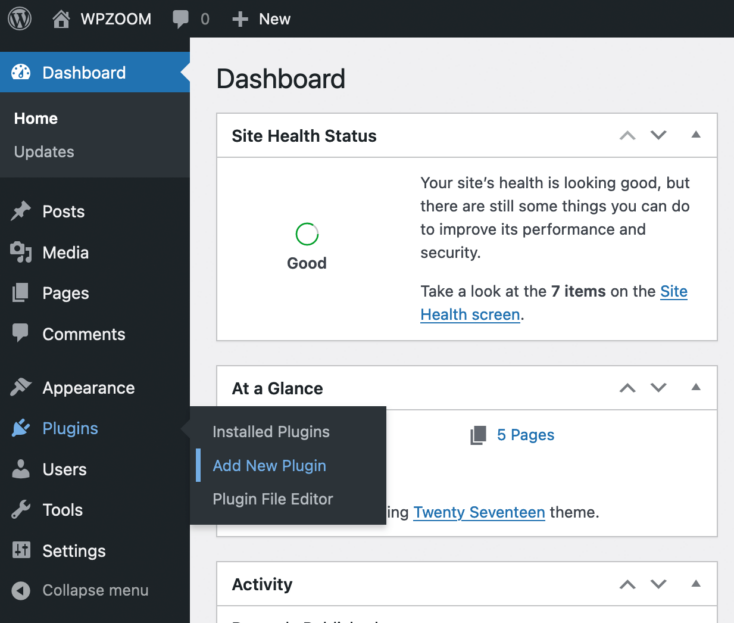
3. Use the search bar to find specific plugins or simply browse through the recommended plugins in the directory.
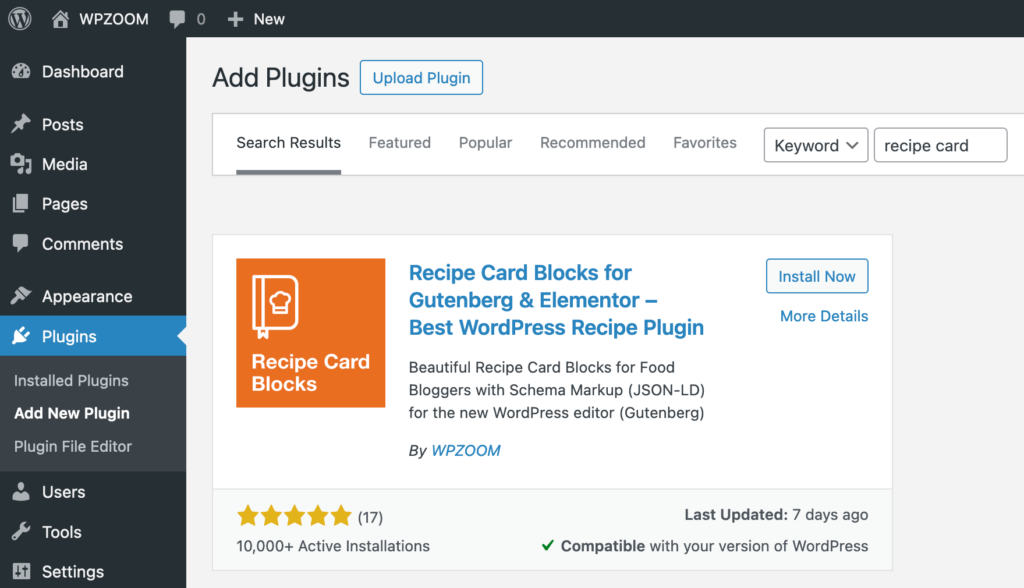
4. Once you find something, click on More Details to read its description, check its detailed information, and ratings, and make sure it is compatible with your needs and the WordPress version.
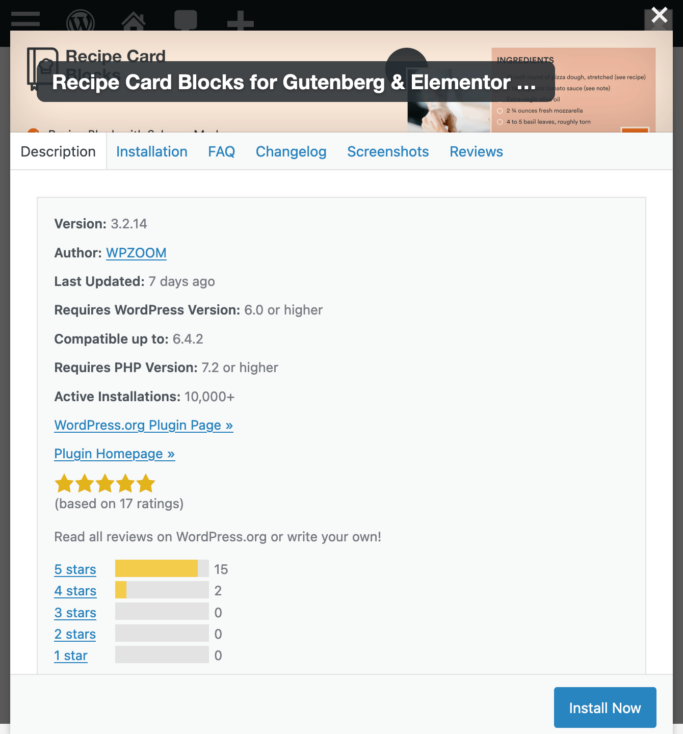
5. Install plugins by clicking on the Install Now button.
6. Once the plugin is installed, you will need to activate it by clicking on the Activate button.
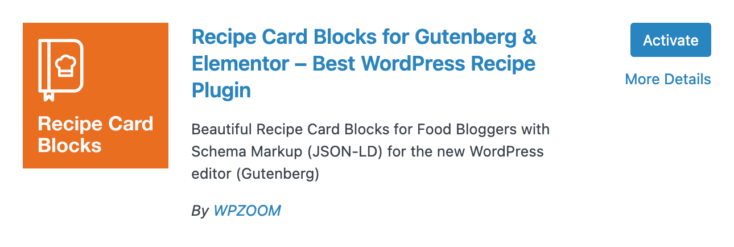
Your plugin is now installed and active. You now need to configure it by following the instructions it provides. This step differs significantly from one plugin to another.
Install a Plugin From Third-Party Sources
Depending on the source you choose for your plugins, you may need to go through different processes to find one. Once you do, you will need to download it as a zip file on your computer.
1. From your WordPress dashboard, go to Plugins -> Add New Plugin.
2. Since you are not using a plugin from the directory, select Upload Plugin at the top of the page.
3. Click on Browse… to select the plugin zip archive from your computer and click on Install Now.
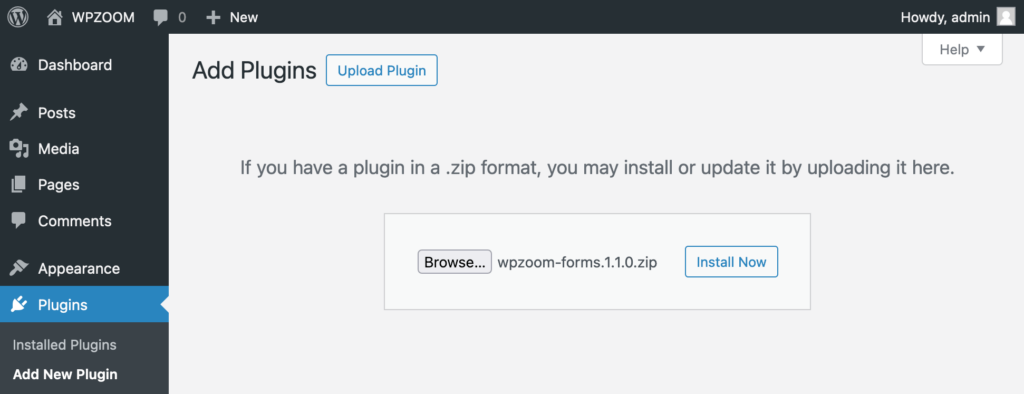
5. Activate the plugin by clicking on Activate.
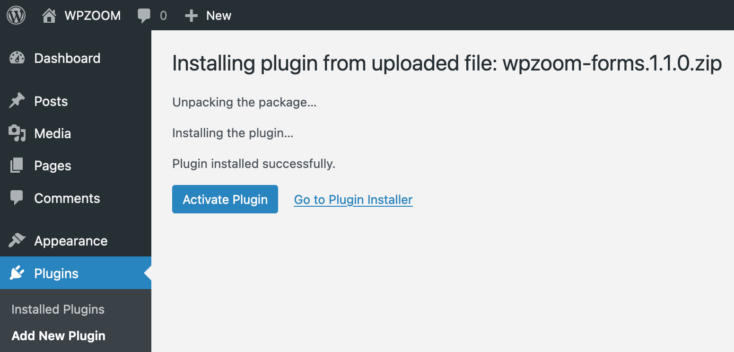
As you can see, the process of finding, installing, and activating your plugins is quite simple.
But, in most cases, this is where the work starts. Plugins are generally very easy to install and activate but will require some work for configuration and general maintenance.
How to Update, Disable, and Remove a WordPress Plugin?
There are several parts of owning a plugin that require some action from your side. On top of the fact that each plugin will need to go through a configuration phase, which will differ in difficulty and overall process depending on the type of plugin in question, you will also need to keep your plugins updated.
Not only that, but you will need to be comfortable troubleshooting them whenever things go wrong, and you will also need to know how to disable and remove plugins you no longer need.
The importance of keeping your plugins updated is tremendous. From the very straightforward reason of simply taking advantage of what each new release has to offer in terms of functionality and performance, to more complex security aspects, there are plenty of reasons to never skip an update.
The same is true when it comes to disabling or removing plugins. Having any unnecessary software installed on your site is going to harm performance. Therefore, unless you constantly use and truly need plugins, there is no reason to keep them active or even installed on your site.
Here is how you can update, disable, or remove your plugins:
Log in to WordPress to access your dashboard and go to the Plugins tab in the left sidebar.
To update a plugin, click on update now next to each plugin that offers you this possibility.

To disable a plugin, click on Deactivate below the plugin’s name.
To remove a plugin, disable it first, then click on Delete below the plugin’s name.
How to Choose the Best WordPress Plugins
When it comes to choosing the right plugins to go with your WordPress site, there are several things you should always keep in mind. While plugins can provide functionality or design options, they can also come with a series of drawbacks you should be aware of.
Depending on the source of the plugin, or the way it was built and designed, things can go wrong sometimes in terms of functionality, security, and performance. Let’s see what the most relevant criteria you should take into account whenever you choose to start using different plugins.
1. Compatibility and Performance
Even though most plugins you get to choose from come from curated lists and have been developed with a lot of care and attention to detail, you can still face some compatibility issues.
You should always check and ensure that the plugin is compatible with the latest version of WordPress (or the version you are currently using – which should be the latest if you want to avoid security issues).
On top of this, you also need to consider the way plugins interact with each other. Ensure that the plugin integrates seamlessly both with your existing plugins and your WordPress theme. Compatibility issues can arise if plugins are not designed to work well together.
Also, plugins can impact your site’s performance. Choosing top-quality plugins from trustworthy developers or sources will reduce your risk of damaging your site’s performance.
2. Updates, Maintenance, and Support
Plugins can be a rather comfortable way for hackers. The way you manage your plugins, how you choose them, and how meticulous you are about keeping them updated matters a lot.
That is, however, only part of the story. For you to be able to update your plugins, the development team behind them also needs to create new releases, create security patches when needed, and provide new versions.
You need to keep in mind that a plugin that doesn’t receive regular patches and doesn’t have new versions released regularly can become problematic for your site. When you use the WordPress plugin directory as your plugin source, you generally gain access to quality products.
If, however, you decide to install WordPress plugins from other sources, you will need to make sure to manually check how trustworthy the plugin is yourself.
Equally important, you will need to take into account that regardless of how good a plugin is, you might need to inquire about different issues. That means you might need to check documentation, or even get in touch with the support team to figure out the answers to your questions.
Try and make sure that every plugin you use comes with a dedicated support team that will be able to quickly help you whenever you run into trouble. The easiest way to make sure that you own a quality product with all the relevant perks that come along with it is to check active installations and user ratings in the WordPress plugin directory.
3. Cost
Most of the plugins you can find in the WordPress plugin directory come with a free version that allows you to see how the plugin operates and what services it can provide.
While for many WordPress users this free version is enough for their day-to-day needs and operations, paid plugins provide a lot more in terms of functionality. You should always check the pricing for each plugin you use.
That way, you will easily find out whether you can afford to use free WordPress plugins, or whether your needs exceed what the free plan offers. Once you establish this, budgeting your expenses with the WordPress site will become a lot easier and more convenient.
Must-Have WordPress Plugins by Type
WordPress plugins are useful and able to serve a wide variety of purposes. From this huge variety, some plugin types stand out from the rest and have become very common occurrences among WordPress sites of all kinds.
Here are some of the most popular categories and some examples of relevant plugins that represent the golden standard in each category.
1. SEO (Search Engine Optimization)
While SEO has become a true science in the past decade, there are still things that can be standardized and optimized through dedicated plugins. From generating robots.txt or sitemap files to analyzing content quality or even creating automated rules for meta titles and descriptions, SEO plugins are quite useful.
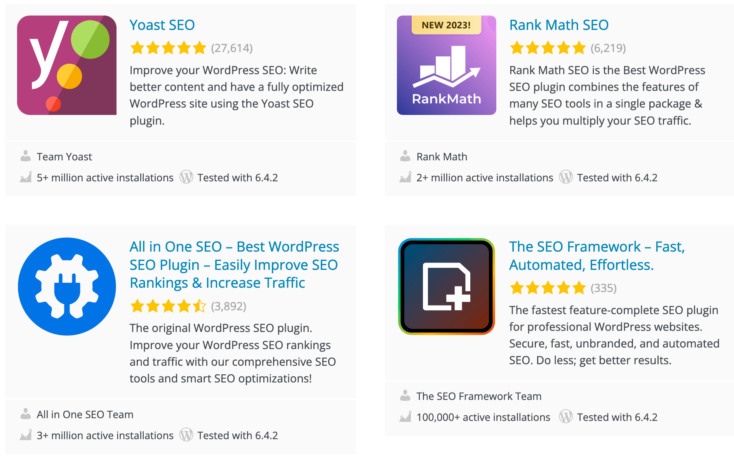
Here are some of the most important ones you should know about:
2. Security
Several plugins can enhance your website’s security. Whether you need a tool to filter out spam comments or a more complex solution that offers more features, there is quite a lot for you to gain if you decide to install security plugins (as long as you choose the right ones).
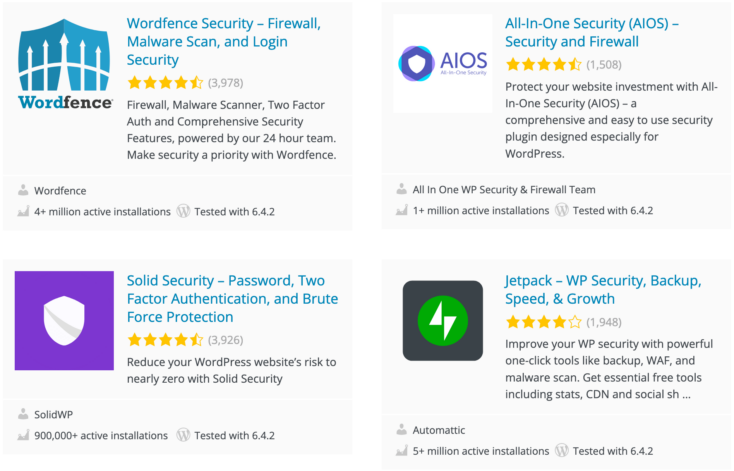
Here are some of the most appreciated security plugins for WordPress:
3. E-Commerce
Plugins can be a great solution for people who are looking to start an online store and don’t have a big budget or the right level of experience to create a custom platform.
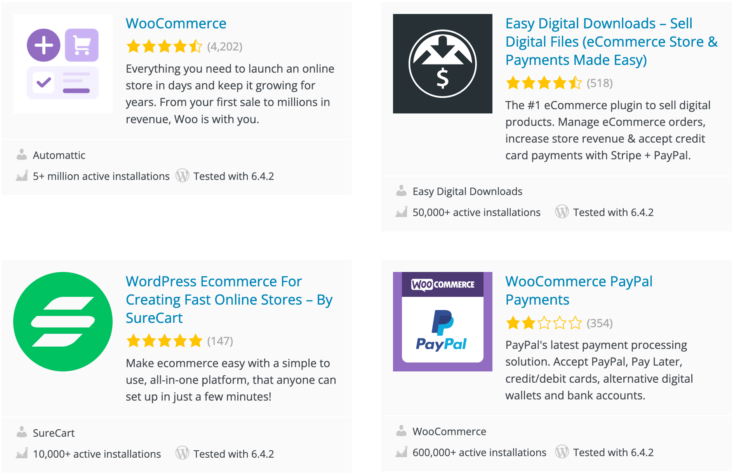
E-commerce plugins are incredibly popular and have been responsible for thousands of online stores created in the past decade, including the incredibly creative and lucrative dropshipping business model.
There are dozens of e-commerce plugins for you to choose from, but the most relevant ones are:
4. Backup and Migration
One of the scariest things you can imagine as a website owner is suddenly losing all your data and content. To prevent this possibility, backup plugins have been created and are there for you in case anything goes wrong.
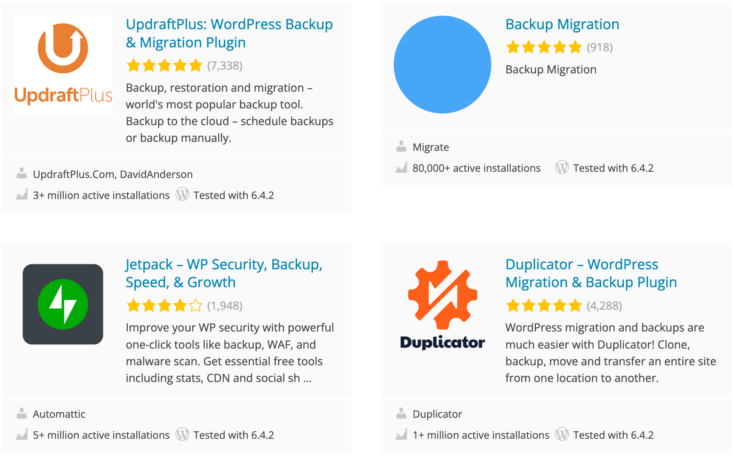
And even if things don’t go wrong, you might still find yourself in situations where you simply need all your data to be moved from one server to another. Migrating your content from one place to another does carry some risk if you are not an experienced user.
Backing up your data is extremely important, and having the right tools to do this easily is a huge advantage. Here are some of the best backup plugins out there:
5. Performance Optimization
Since loading times and performance in general are extremely important, some tools can enhance your site’s performance.
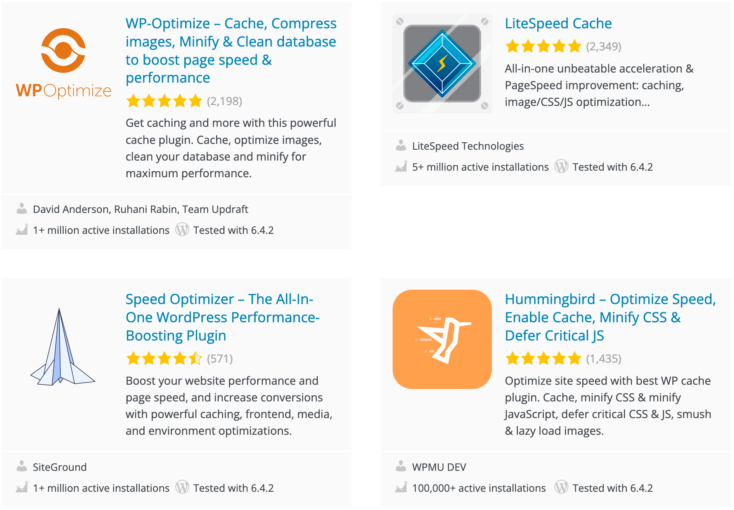
From minimizing the size of images to decreasing loading times to deleting cached files and more advanced features, performance optimization plugins can help you manage your site more effectively.
6. Social Media Integration
Since social media has been a very powerful marketing tool for many years now, each website needs to provide social media sharing options to its visitors.
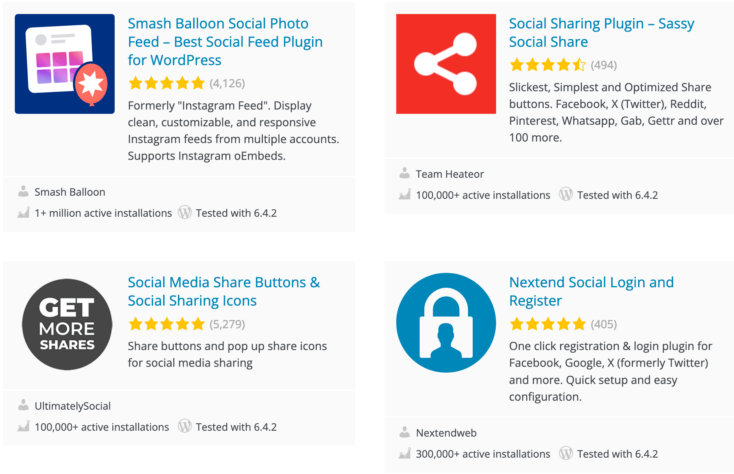
Whether that means offering the option to easily share each blog post or product or ways to entice website visitors to follow businesses on social media platforms too, plugins offer simple and effective solutions.
Here are the best social media plugins you can install on your WordPress site:
7. Contact Forms and Email Marketing
Staying in touch one way or another with your customers or visitors is incredibly important. Giving your visitors a way to get in touch with you is just as important as having this possibility yourself.
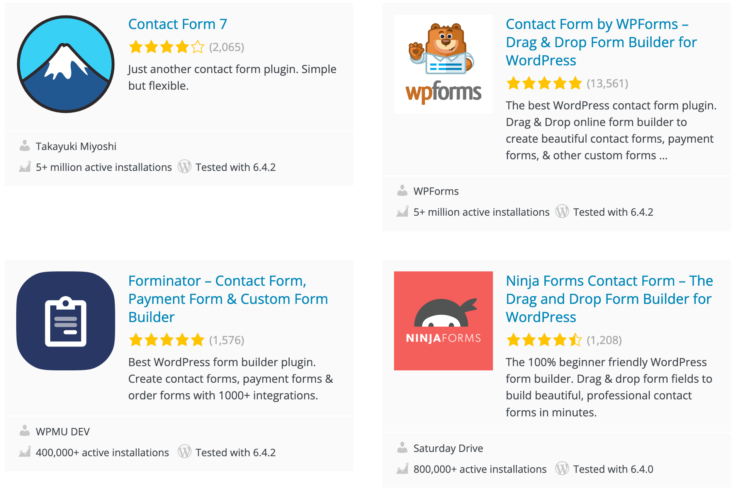
So, adding contact forms on your website will allow interested parties to get in touch with you. Adding this functionality to your WordPress site is very easy with the right plugins. Here are some of the best:
To be able to get in touch with your customers through newsletters, you will need their consent and their contact information. They can easily provide these to you if you integrate subscription forms for email marketing into your website and start building your contact database. Here are some plugins that can help you do that easily:
8. Analytics
Whether you need to have an easy way to integrate Google Analytics into your website or you are looking for different solutions to analyze your traffic and other metrics, there are many plugins you can choose from.
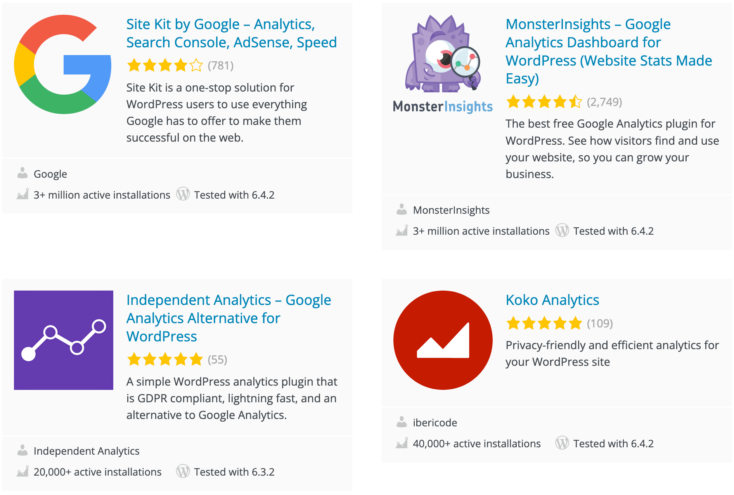
These can provide a whole lot of different KPIs for you to follow and analyze. Here are some of the best plugins you can use:
9. Page Builders
Customizing your website can be a lot easier if you use the right plugins. Even though WordPress themes are generally very easy and straightforward in the customization options they offer, you can find yourself needing some more.
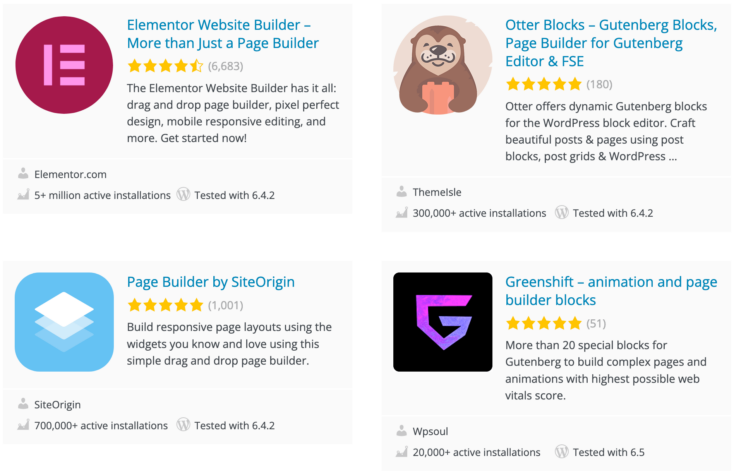
Themes can, however, not offer exactly as many options as you might like or need. That is where page builders step in to provide you with more complex solutions. Here are some of the best plugins you can use for customizing your WordPress website beyond what a theme can do:
10. Multilingual Translation
Offering your content in several languages is a top requirement these days. A multilingual website can be quite a challenge, but the rewards will make the efforts well worth it, especially because of the SEO advantages your platform will have.
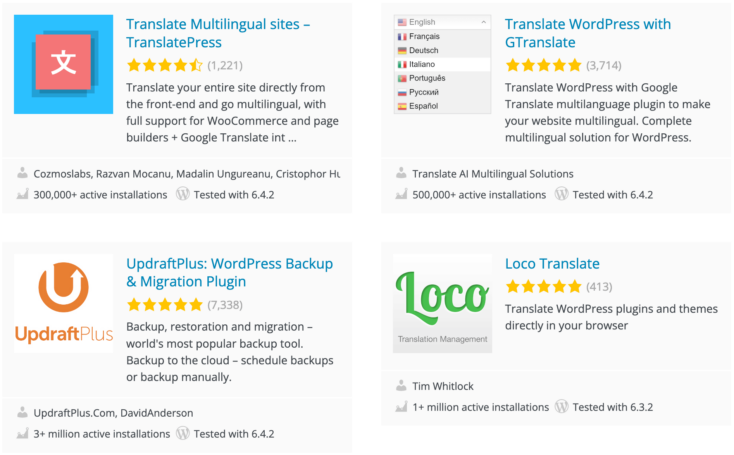
With tools like Google Translate or even ChatGPT, having your content translated into quite a lot of languages is not as expensive as it was some years ago, but you will still need some plugins to help you turn your website into a multilingual platform. Here are some of the best options:
11. Comment and Spam Control
Offering your visitors a chance to interact with your site is important. Whether that means getting in touch with you through contact forms or a way for them to comment on the content you post, the important thing to remember is that as long as visitors have a voice, they will be appreciative.
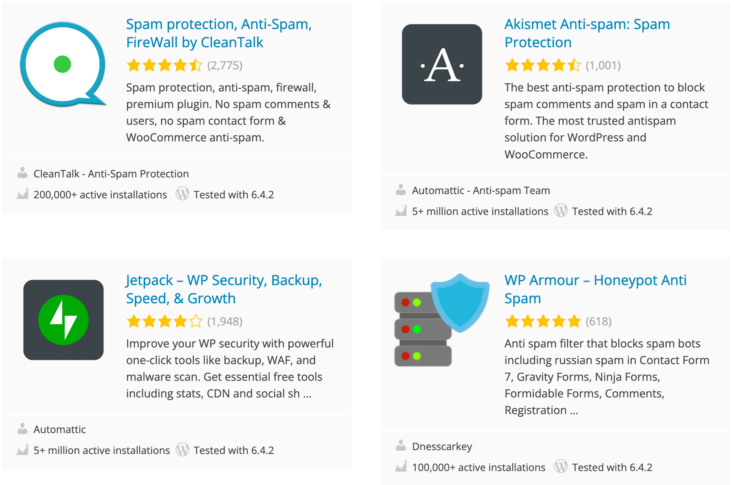
There are special plugins available that can generate comment forms on your blog posts and can also assist in preventing or blocking spam from being posted on your site:
How Do WordPress Plugins Work?
How plugins integrate into WordPress and what they do to provide you with different types of functionalities and features is a challenging concept to grasp. Still, it will provide a new perspective as a WordPress user.
From a technical perspective, plugins work by using access points in the WordPress framework. These are also known as filter and action hooks, and they allow plugins to “hook” into the WordPress source code through the WordPress Plugin API. These access points will be used to trigger the actions and functions of the plugin to change the default aspect or behavior of WordPress whenever needed.
Here are some ways in which plugins interact with the WordPress core:
Hooks (Actions and Filters)
Actions are events triggered by specific occurrences in WordPress, such as publishing a post or loading a page. Plugins use action hooks to execute custom code at these points, adding or modifying functionality.
Filters allow plugins to modify data before it is displayed. These filters are applied to different processes that can range from content generation to database queries. Plugins hook into these filters to change the behavior without modifying the WordPress core.
APIs
Application Program Interfaces (APIs) are provided by WordPress and they can be leveraged by plugins. These APIs can offer database access, solutions for content creation, user authentication, and other things.
Plugins interact with these APIs to integrate with WordPress seamlessly. For example, using the REST API can ensure a plugin can retrieve and manipulate data, exchanging information efficiently with the WordPress core.
Plugin Files and Structure
Every plugin has a main PHP file that contains metadata. This usually includes the plugin name, version, author data, and initialization code. This is used as an entry point and is the setup file that allows the plugin to connect to WordPress.
On top of this basic data, each plugin will also come packed with additional assets. Depending on its complexity and the way it is meant to interact with WordPress and the purpose it is meant to be serving, it may contain quite a lot of other data.
These extra assets come as Javascript, CSS files, or different other formats depending on the complexity and purpose of the plugin.
Data Storage and Manipulation
Plugins also need to store and retrieve data most of the time. This is possible due to the way WordPress offers a database abstraction layer for secure and standardized data manipulation. Plugins can also create custom WordPress database tables to store their specific data. This ensures that plugins organize their data separately from the WordPress core data.
FAQ
Are Plugins Necessary for WordPress?
While WordPress can work to a certain extent without plugins, they are essential for adding features and customizing your site. Plugins enhance functionality, improve user experience, and help achieve specific goals.
What Is the Difference Between a Theme and a Plugin in WordPress?
A theme controls the visual presentation of your site, including layout, design, and styling. Plugins, on the other hand, add specific features and functionalities to your site, such as SEO tools, contact forms, or e-commerce capabilities.
Are WordPress Plugins Free?
There are many free plugins available in the official WordPress Plugin Directory. There are some plugins though, that have premium versions with additional features and dedicated support. These may require a one-time purchase or a subscription.
How Many Plugins Should You Have On WordPress?
No rules are saying how many plugins you can or should install on your WordPress site. You should, however, be mindful of your site’s performance and the way all these moving parts interact and function together. Too many plugins can lead to performance and compatibility issues.
What Are the Disadvantages and Risks of Plugins?
The most commonly seen drawbacks of WordPress plugins are security flaws, performance issues, and compatibility issues.
Do Plugins Slow Down WordPress?
In some cases, yes. Poorly coded or resource-intensive plugins can cause slower loading times.
Do WordPress Plugins Expire?
Generally, no. Plugins don’t usually have an expiration date. If you choose to use premium plugins that work on a monthly subscription basis and cancel your subscription, you could say that your plugin will expire when you stop the premium payments.
Where to Buy WordPress Plugins?
Premium plugins are often available for purchase from the developers’ websites like WPZOOM or marketplaces like CodeCanyon, and ThemeForest.
Do Plugins Affect SEO?
Yes, plugins can affect SEO in one way or another. SEO plugins help optimize your site for search engines, while other plugins may indirectly affect SEO by influencing site speed and user experience.
Bottom Line
WordPress plugins are extremely useful tools you can install on your WordPress site. They can provide a huge variety of different benefits. They can be a great way for you to customize your WordPress site, enhance its functionality, or even improve its performance.
Knowing how to choose the right plugins for the purpose, where to get them from, and how to keep them updated and working properly is very important for the well-being of your WordPress site. Now you should have all the relevant information.

